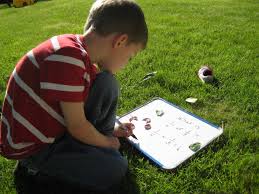I came across an interesting study while researching this post that really caught my attention. The American Institutes for Research looked at the impact of a week-long outdoor education program for at-risk youths. The results were: a 27% increase in mastery of science concepts; better problem solving-skills; enhanced self-esteem; improved conflict resolution; improved relationships with peers; and increased motivation to learn. All this compared to a control group that remained in the classroom and that did not see these results.
This makes salient the fact that NDD should not only be the parent’s problem, but that education systems need to stand up and take note as well.
How can they go about getting involved?
Louv asserts that it is no enough to simply tweak curriculums to include more on the environment; future directions must also work towards widening the definition of the classroom. In Louv’s words, ‘policy-makers must view parks, wildlands, farms and ranches as the new schoolyards.’ This line of thinking is indeed being implemented in different education programs in America.
(via teachingmybabytoread.com)
To illustrate the ways in which education systems can steer children away from NDD, I think it would be good to share about a particular model I came across. This is the EIC model developed by the State Education and Environment Roundtable (‘a cooperative endeavor of education agencies’ covering 16 states). It stands for Environment as an Integrating Context. Its main tenet that is relevant here is using the ‘local natural and community surroundings as the context for learning.’ One teacher involved declares faith in the program, saying that the children are creating memories that last, remembering what they did rather than merely what they learnt. This highlights the difference between simple instruction on environmental topics, and actual contact and integration with it.
For more on this program and its results click here (short overview) or here (official website).
Next up, we look at the societal level…stay tuned!
 Research says Barney should have class outside…
Research says Barney should have class outside… ![]() (via pinterest)
(via pinterest)

